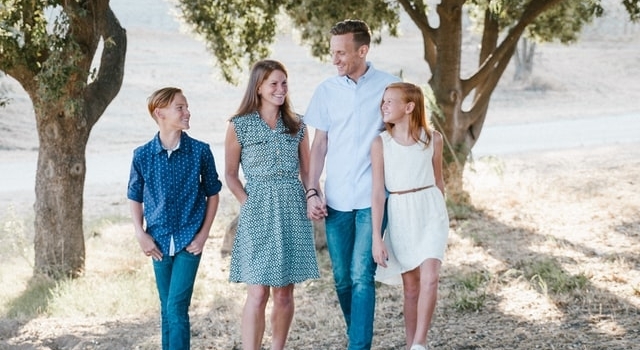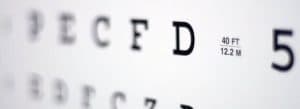Personal stories from parents of children in special education.
*Names have been changed for privacy protection.
Click here for a list of more success stories pages, you might just recognize your child in.
Marc, age 7
My son was having trouble in school. He would flip letters in words. He would also turn letters around. I thought he had a severe reading problem. Dr. X was recommended by the head of the Department of Special Education where we live.
I had my son tested by Dr. X and I found out it was something that could be corrected through Vision Therapy. Thanks to Dr. X, my son has shown great improvements in reading, and his self- confidence has improved as well!
Lisa, Marc’s parent
Garrett, age 10
It was in the 3rd grade, when I noticed my son’s reading difficulties. Although he comprehended with ease and kept a straight “A” report card at a private school, to read a page out loud became his greatest fear.
Academic testing found him at grade level reading in word recognition and in the 10th grade in reading comprehension. His ability was at gifted levels, but a keen eye would see that his fluency in reading was not consistent with what his abilities dictated.
When he read, he would have difficulty keeping his place, he would misread words, or guess words that would work in context. To keep his grades at superior levels, Garrett needed to work very hard. He developed the ability to read by context and learned to answer any questions by deductive reasoning.
By the 4th grade, Garrett’s esteem began to waver, and he began to doubt his gifted ability because he read with limited fluency. I knew that his difficulty had to be one of visual perception, yet after being tested by two reputable optometrists, they did not see a visual perception problem.
I was not surprised to find out that Garrett needed Vision Therapy. He was found to have convergence insufficiency, which made his eyes overwork and become tired when reading.
It was interesting to see that when he read using both eyes his fluency was significantly slower than when he read using one eye. I brought my son to Dr. X’s Vision Therapy sessions.
Within two months, my son turned to me at church as we were singing. He said, “Mom, I think Vision Therapy is working! I can keep up in the hymnal!” I stood there, tears welling up in my eyes.
His progress also was seen in his oral reading at school. His teacher had noticed the improvement and considered Garrett in the top third of the readers in class.
For the first time in his life, I saw him choosing to read in his free time. Soon, Garrett was always reading, and he loved it! His interest was growing in many areas, and began looking up many things on the Internet and finding information on things independent of assignments or suggestions.
After just three months, Garrett had trained his vision to correctly perceive. His desire to improve his reading gave him the nightly discipline. His commitment allowed him to sometimes do his therapy even beyond the recommended time.
Since Garrett had only an isolated visual perception weakness, and did not have any other learning disabilities, I am convinced that Vision Therapy allowed him the life-changing joy of reading with ease.
Vision Therapy is a vital necessity for anyone who has a perceptual weakness to the point that it affects his or her ability to find success at school or in work.
With a thrilled heart, full of gratitude,
Mrs. Joynce I., M.A., Ed.
Ben age 8
Ben was in 2nd grade when the school approached us to suggest ADD/ADHD and/or Special Education issues. We started testing in school and privately. All the testing showed that Ben had trouble with visual processing.
The psychologist recommended Vision Therapy. Ben was tested. We discovered he needed bifocals and that his eye fatigued a lot when doing chalk board work and reading tasks. Ben has done amazingly well with Vision Therapy. After five months, his reading abilities have improved. He is now reading at grade level.
Ben has really enjoyed the Vision Therapy appointments, as well as the homework. I have recommended Vision Therapy to some of the parents at the school where I work. Their kids are also having success.
I am very grateful for everything the Vision Therapy team has done for Ben and others.
Michael H., Ben’s parent
Christian, age 7
I could not be happier with the changes we see. Christian is excited about reading and all the mechanics are in place for writing. The Special Ed teacher re-tested Christian’s reading, and says it is now several years above grade level. His reading had been below grade level at the beginning of the year.
Beth H., Christian’s parent
Eye doctor’s comments about Christian:
Problems prior to Vision Therapy:
- Problems with eye tracking
- Couldn’t finish work in school
- Struggled with reading and math
- Attention difficulties
- Avoided all sports (poor coordination)
Benefits of Vision Therapy:
- Improvement in all visual and motor coordination areas
- Less clumsy
If your child is receiving special education, contact an eye doctor near you, who can diagnose and treat any underlying visual problems.
SEE RELATED: The Myth of 20/20 Vision
Alex, age 8
There is little in life more rewarding than to watch your child glide effortlessly through a book after years of struggling over every word.
A year after the completion of a Vision Therapy program, Alex is a confident reader and is getting straight A’s in school! That’s a far cry from the days when he would lunge to the floor, book in hand, crying, “I can’t do this, it’s too hard.”
Today he has graduated from the Special Ed. program, enjoys reading and has regained confidence as a young man.
Claire R., Alex’s parent
Ty, age 5
We brought Ty to Dr. X the summer after kindergarten. Ty had been experiencing difficulty in every aspect of school, including reading, writing, focusing and coordination. Dr. X, his staff and our family worked diligently with Ty after a thorough investigation of what Ty’s needs were.
With the Vision Therapy sessions and the homework from Dr. X, along with the special education program at his school, Ty has not only met his scholastic goals, but has exceeded his teacher’s and our expectations.
Maureen W., Ty’s parent
Sam, age 9
I wanted to tell you how impressed I am with the results of doing Vision Therapy with my 9-year old son. After only three months of exercises, I have noticed improvements in several areas:
- he can sustain reading for longer
- he can look at visually busy papers (such as maps) and sort out what is happening (he used to get overwhelmed)
- he can copy things from the board onto paper more easily
In addition, his Occupational Therapist noticed a major improvement. Her comment was that “something really came together neuro-integratively”.
I look forward to more Vision Therapy sessions, to obtain even more positive results.
Judi R., Sam’s parent
Josh, age 7
Joshua had been in occupational and physical therapy during the time he was attending school. During this time, Joshua’s gross motor skills did show improvement, but he still had difficulty performing tasks that you and I take for granted, such as catching and throwing a ball, walking in a straight line without losing his balance, etc.
A few years ago, Dr. X recommended Vision Therapy for him. She told me that the way Joshua’s eyes were working he would never be able to drive a car.
Now, after Vision Therapy, Joshua can catch and throw a ball with ease, walk a straight line without losing his balance, and read a page in a book without the words skipping all over the page.
I’ve noticed that a lot of children with problems in school also have problems with their eyes. With the experience that I’ve had with Joshua, wouldn’t it make sense to take a closer look at Vision Therapy as a serious consideration in helping these children?
How can a child read and learn if the words and letters on the page keep jumping around from place to place? No amount of special education and physical and occupational therapy can fix this.
I hope parents, teachers, therapists, and pediatricians will take another look at Vision Therapy, and ask people who have taken advantage of the service how they liked it.
Beth T., Joshua’s parent
Eleanor, age 8
My daughter, Eleanor, was really struggling in school. She could not read. She was put into a special education class and was spending a great deal of time away from her regular class. Her self-esteem was very low.
Vision Therapy has helped Eleanor feel good about herself. Now, she can read! She reads books by herself and is rapidly catching up on the things she missed the last year of school. Her handwriting has improved and she remembers what she has read. She can read without following the lines with a ruler or her finger.
We feel that Eleanor has gained control of her life, self-esteem and education as a result of going through Vision Therapy. She looks forward to doing things every day, because she knows she can do them.
Heather H., Eleanor’s parent
Matt, age 8
Matt’s Special Education teacher described him as a depressed and sad little boy. She felt he was very smart and his school struggle was confusing everyone.
At Matt’s first visit to the eye doctor, it was determined that he needed therapeutic lenses. I will never forget how astonished Matt was once he was able to finally see what words were really supposed to look like.
Our lives changed dramatically and Matt’s schoolwork improved drastically. He was taken out of his second grade Special Education Program.
This year in third grade Matt did so well in school that he was awarded ‘Student of the Month for Most Improvement’.
Matt’s parent
Can you relate to any of these stories?
If your child has been struggling academically, they may have a vision problem. Schedule a vision evaluation as soon as possible.
LEARN MORE: Vision Therapy for Children
The earlier a vision problem is detected, the sooner they can begin a vision therapy program to help them achieve the visual skills they need for clearer, more comfortable vision— and improved academic success.


